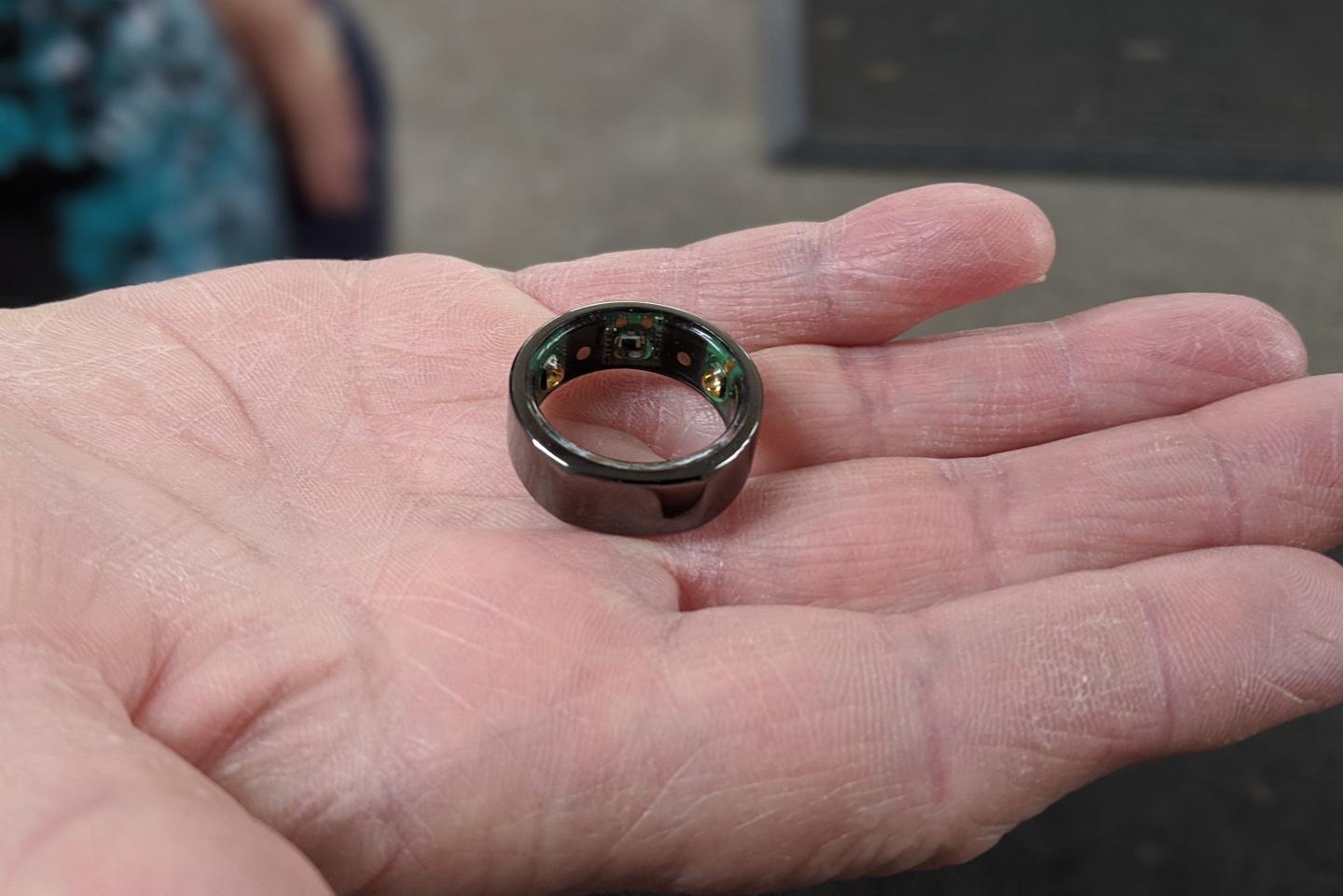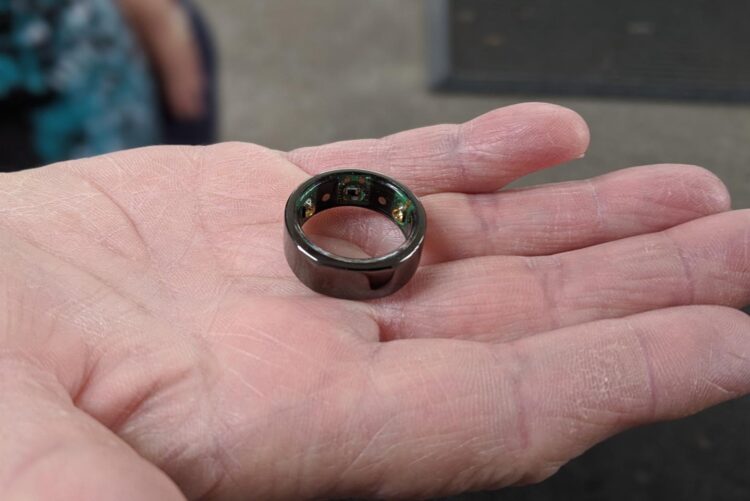
Credit: West Virginia University
(Editor’s note: A media tool kit with photos, videos and additional resources is available in the WVUToday Media Center.)
The West Virginia University Rockefeller Neuroscience Institute, WVU Medicine, and smart ring maker Oura Health today (April 8) announced a national study designed to accelerate early detection of the COVID-19 virus symptoms and contagiousness. Leveraging an artificial intelligence -driven predictive model, wearable ring technology, and a COVID-19 monitoring app, RNI scientists and partners are developing an innovative “digital PPE” approach that potentially can identify infected frontline healthcare professionals before they become symptomatic – a possible breakthrough in monitoring capabilities and limiting the spread.
The RNI’s approach not only measures the onset of increased body temperature from the Oura ring and physical symptoms but goes beyond that by looking at the individual holistically – integrating physiologic measures with psychological, cognitive and behavioral biometrics, such as stress and anxiety. In real-time, this holistic approach can provide an early and more comprehensive assessment, tracking the mind-body connection and homeostasis in the context of asymptomatic infection. Through this analysis, the team can forecast and predict the onset of fever, cough, fatigue and other physical symptoms linked to viral infections.
Over the past three weeks, Oura smart rings and the RNI COVID-19 monitoring smartphone app have been deployed to physicians, nurses and other frontline healthcare workers in the ED, ICU, testing sites, and urgent care settings in West Virginia. In addition, the RNI is partnering with hospitals across the country, including those in New York City, Philadelphia, Nashville and other critical emerging areas, to monitor more than 1,000 front-line healthcare personnel with exposure to COVID-19.
“We are continuously monitoring the mind-body connectivity through our integrated neuroscience platform measuring the autonomic nervous system, fatigue, anxiety, circadian rhythms, and other human resilience and recovery functions,” Dr. Ali Rezai, executive chair of the WVU Rockefeller Neuroscience Institute, said. “Our AI-driven models are currently predicting symptoms 24 hours prior to onset, and we are working toward a three-plus day forecast. This forecasting capability will help us get ahead of this pandemic; limit the spread to protect healthcare workers, their families, and our communities; and improve our understanding of health recovery.”
More broadly, the RNI is continuously monitoring and analyzing more than 30,000 subjects through its integrative neuroscience approach, gaining insight and predictive success in chronic pain, addiction, aging and other illnesses, as well as the readiness and recovery of our military.
“At Oura, we’ve heard firsthand from our users how the physiological signals tracked by the ring have predicted the onset of the virus before other symptoms manifest,” Harpreet Rai, CEO of Oura Health, said. “We’re grateful we can apply this knowledge to help vulnerable caregivers swiftly identify the earliest signs of the disease, and take the appropriate protective measures to limit its spread.”
“We have done extensive research in the wearable space, and Oura’s accuracy and usability is unparalleled to anything we have tested,” Rezai added, “We are proud to partner with Oura and its innovation to serve our population.”
###
(Editor’s note: A media tool kit with photos, videos and additional resources is available in the WVUToday Media Center.)
About the Rockefeller Neuroscience Institute
We are improving lives by pioneering advances in brain health. With the latest technologies, an ecosystem of partners, and a truly integrated approach, we are making tangible progress. Our goal is to combat public health challenges ranging from addiction to Alzheimer’s, benefiting people in West Virginia, neighboring states, and beyond. Learn more about the RNI’s first-in-the-world clinical trials and the top caliber experts joining us in our mission. For more information, visit http://www.
About Oura Health
Oura Health helps people improve their sleep, better understand their bodies, and reach their goals. The Oura Ring and app track all stages of sleep and activity to provide daily feedback and practical steps to inspire healthy lifestyles. Founded in 2013, Oura Health has raised $47M of funding from Forerunner Ventures, Gradient, Square Inc. and MSD Capital, and angel investors. Oura Health is headquartered in Oulu, Finland, with offices in Helsinki and San Francisco. For more information, visit http://ouraring.
Media Contact
Marisa Sayre
[email protected]
Original Source
https:/





